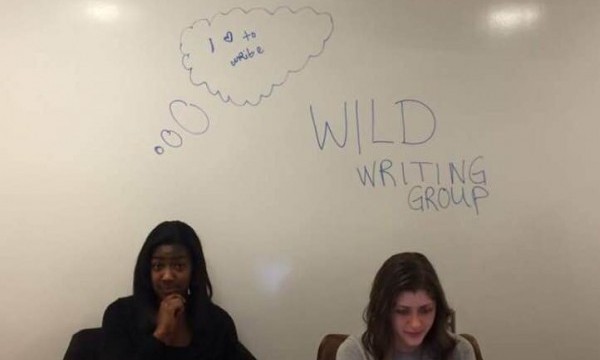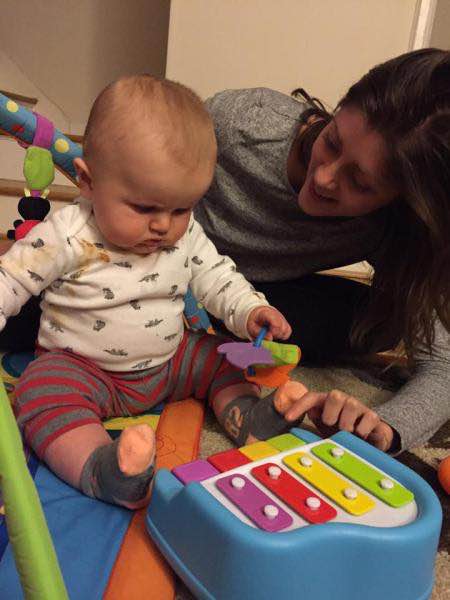Welcome to our blog series on innovative projects coming out of The Edge! The Edge is a collaborative space in Bostock Library where students, faculty, and staff can work on research projects over the course of a semester or academic year. If you have a project that would be ideal for the Edge, head over to our project spaces page to submit an application.
The Wilbourn Infant Lab at Duke (WILD)
The Wilbourn Infant Lab at Duke (WILD) is a developmental research lab in the Department of Psychology and Neuroscience at Duke University. In the WILD, we study how infants and children learn language and how different modes of input, such as gestures, may influence early language and cognitive development. In addition, we are interested in how different cultural backgrounds and linguistic experiences influence young children’s language learning.
We do research with infants, children, and adults in the Social Psychology building on campus. After we collect the data, we analyze it. In the Edge, our project group meets to turn those analyses into something meaningful (e.g., journal articles) — so that we can make sense of our findings and better understand early development!
What inspired this project?
We think how babies learn language is fascinating! In just a short amount of time, infants can learn so much. Figuring out what they know and how they learn it is a mystery because we can’t ask babies questions or give them surveys. So, we devise creative experiments (usually relying on looking time) to tap into their knowledge!
Who are the members of your team? What departments and schools are they part of?
- Makeba Parramore Wilbourn, a professor in the Department of Psychology & Neuroscience at Duke, is the director of our team.
- We also have a team of graduate students (PhD students in the Department of Psychology & Neuroscience at Duke University, Master’s Psychology student at North Carolina Central University), undergraduate students (including students developing their honor’s thesis project, or working on independent study projects), summer interns, in addition to research scholars in Psychology.
How has working in The Edge influenced your work?
Having a space outside of where we collect our data has been very helpful for us. This helps us see our work in a new light, while also giving us access to new resources.
What tools do you use for your team collaboration?
Our team really likes to take advantage of the white board walls. In addition to trying to understand previously collected data, we also brainstorm new project ideas. Rather than just talking about our ideas, we’ll often use the white boards to visualize our ideas and form concept maps.
What are you learning as part of this project that is surprising to you?
Babies are always surprising us with how much they know! One of the most fascinating findings so far is that infants are active contributors to their development. They want to learn, and in many ways shape their own learning experiences – this is really exciting to see!
What are the difficult problems you are trying to solve?
Many theories of Developmental Psychology were formed by studying WEIRD (white, educated, industrialized, rich, democratic) babies. However, this is problematic because it provides a very narrow view of human development. Some of our future work is aiming to widen our understanding of developmental processes by studying non-WEIRD populations.
What would you do with your project if you had unlimited resources?
Studying non-WEIRD populations is a difficult task because it is not always easy to get families to come into our research lab on campus. With unlimited resources, we would be better equipped to study infants from many diverse backgrounds!
Final Thoughts
You can learn more about the many different projects we have going on in our lab at our website:http://wild.psych.duke.edu/home.html.
You can also follow us on Facebook (www.facebook.com/WilbournLab) and Twitter (https://twitter.com/wilbournlab) to get updates on our different projects!
This post was written and compiled by Hannah Pope, a Master’s of Library Science student at UNC-Chapel Hill. She is interested in instruction, helping with research, and encouraging student innovation in libraries. She is currently working as a field experience intern in the Assessment and User Experience department and with The Edge at the Duke University Libraries.



